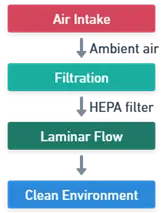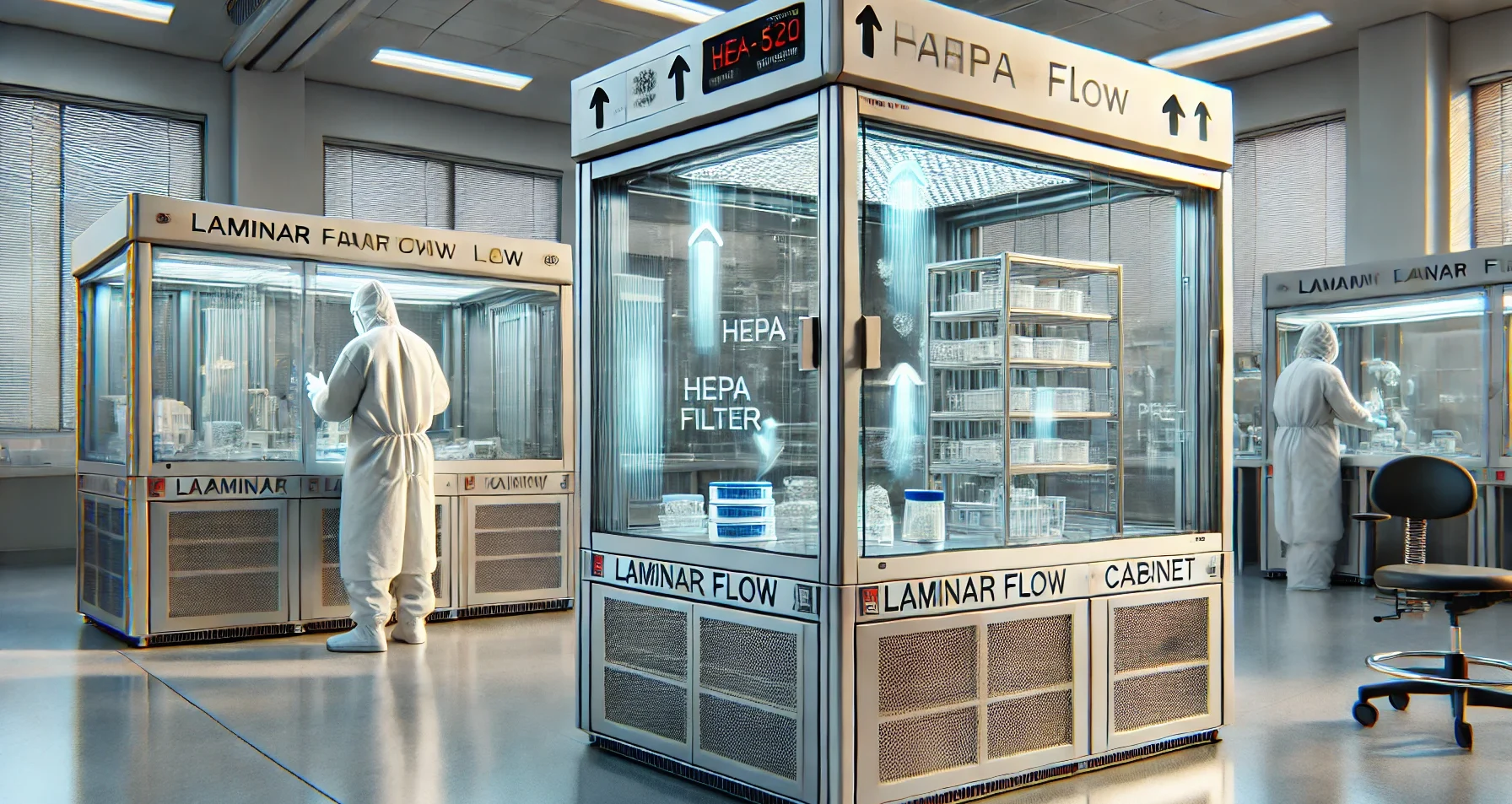- Laminar flow equipment is essential in maintaining a sterile and particle-free environment in aseptic areas.
How Laminar Flow Equipment Works
- Laminar flow equipment provides a uniform flow of filtered air in parallel layers, minimizing turbulence and preventing the spread of airborne contaminants.
- Here’s how it typically functions:
This is a sample ad placement!

-
Air Intake:
- Ambient air is drawn into the unit through pre-filters that remove larger particles.
-
Filtration:
- Air passes through a HEPA (High-Efficiency Particulate Air) filter, which removes 99.97
Demo Ad
This is a sample ad placement! -
Laminar Flow:
- The filtered air is then directed in a smooth, laminar (unidirectional) flow towards the work area.
-
Clean Environment:
- The continuous flow of clean air prevents the ingress of contaminated air and protects the work surface or materials from airborne particulates.
Demo Ad
This is a sample ad placement!
Types of Laminar Flow Equipments
-
Vertical Laminar Flow Hoods:
- Airflow Direction: Air moves downward from the top of the cabinet.
- Applications: Commonly used for aseptic compounding and filling operations.
-
Horizontal Laminar Flow Hoods:
- Airflow Direction: Air moves horizontally from the back of the cabinet towards the operator.
- Applications: Used in laboratory settings for preparing sterile products.
Demo Ad
This is a sample ad placement!
Components of Laminar Flow Equipment
- HEPA Filters: Remove 99.97
- Pre-filters: Capture larger particles to extend the life of HEPA filters.
- Blowers/Fans: Provide consistent airflow across the work surface.
- Work Surface: Designed with materials that are easy to clean and disinfect.
Maintenance
- Regular Filter Changes: Periodic replacement of HEPA filters.
- Airflow Validation: Routine testing to ensure proper laminar flow.
- Cleanliness Monitoring: Regular cleaning and sterility checks.Top of Form
This is a sample ad placement!
Thank you for reading from Firsthope's notes, don't forget to check YouTube videos!

